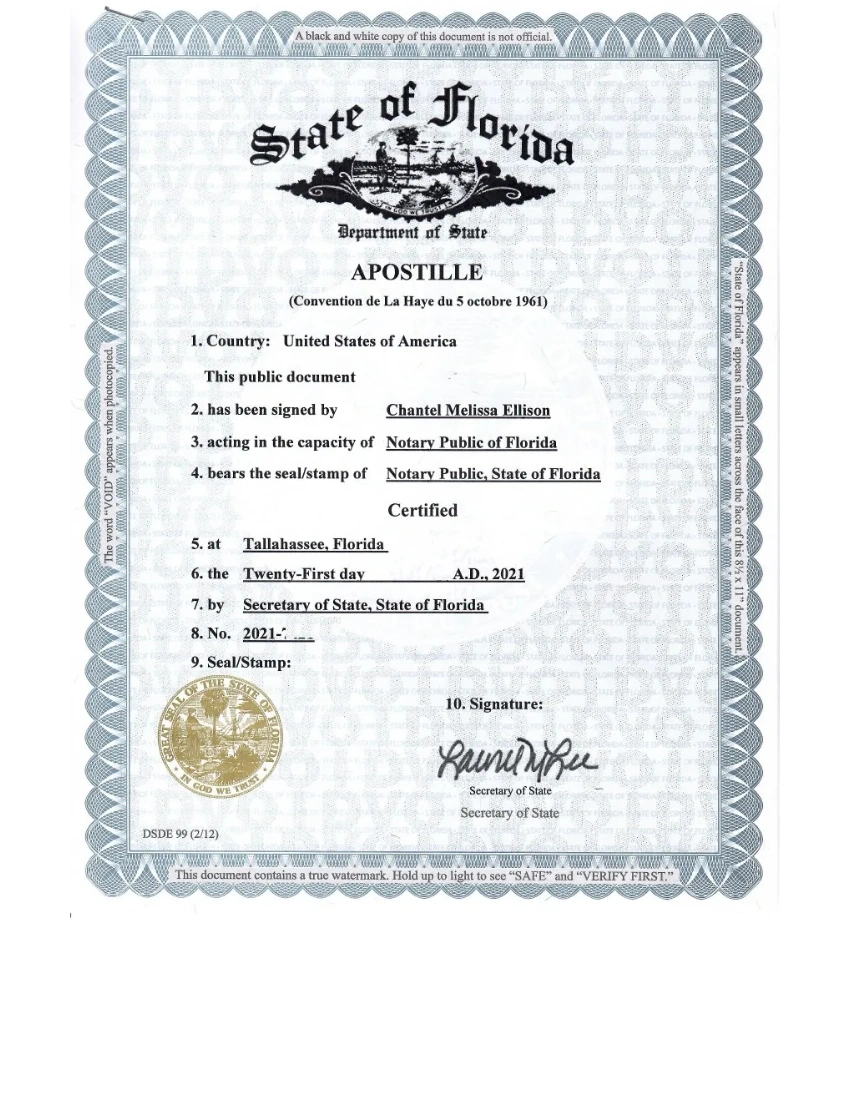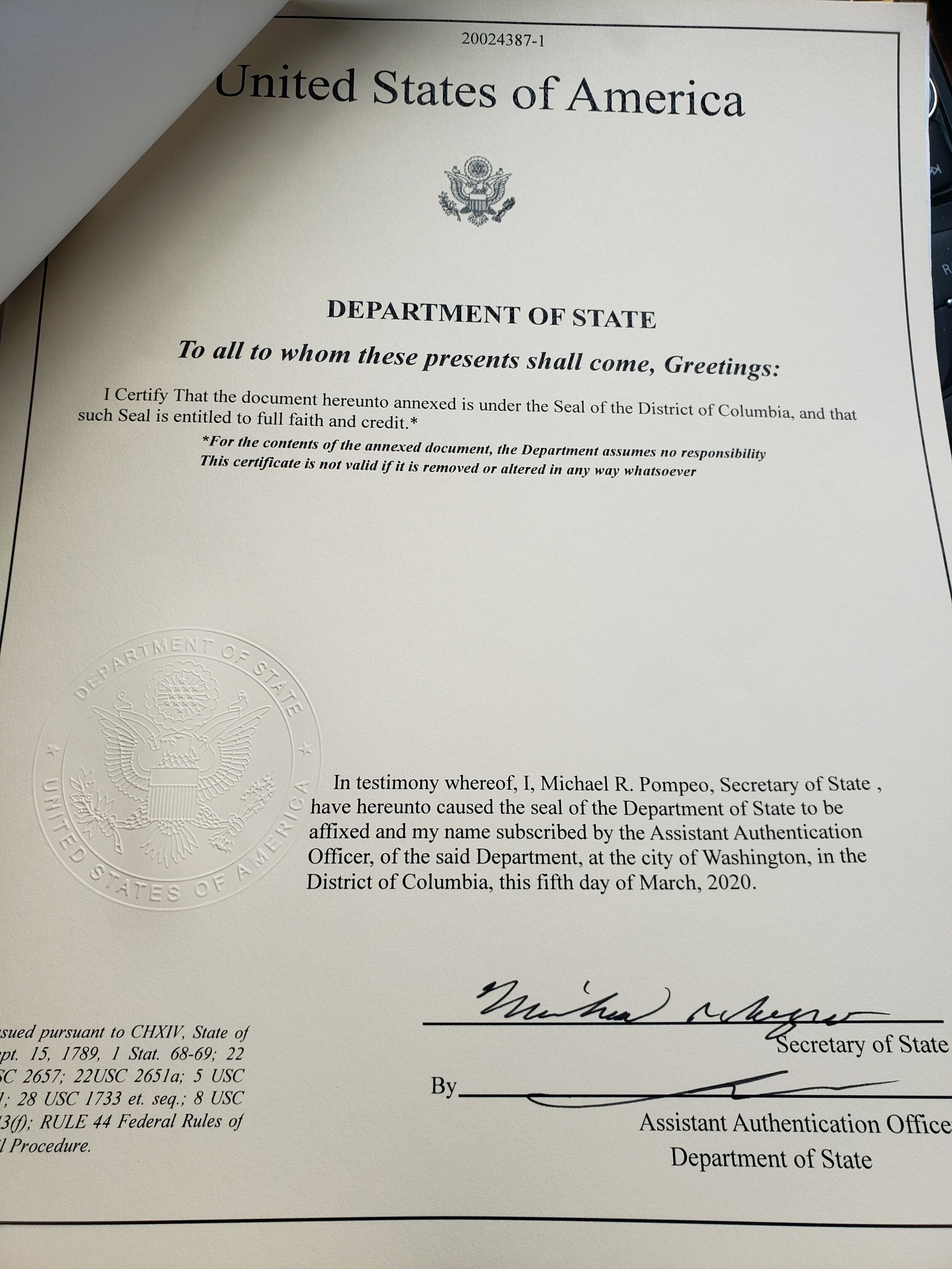Trusted Apostille Solutions in Houston, Texas - Rapid Turnaround
Trusted Apostille Solutions in Houston, Texas - Rapid Turnaround
Blog Article
Looking Into the Factors Behind the Necessary Requirement of Apostille Certification for Legal Papers
In the realm of lawful documentation, the obligatory need of apostille accreditation has become an essential facet that dramatically affects the legitimacy and recognition of legal papers on a global range. Recognizing the reasoning behind this necessity involves diving right into the intricate internet of legal intricacies, historical precedents, and international contracts that underscore the value of apostille qualification in today's interconnected world. By discovering the underlying reasons behind this widespread demand, a more clear picture arises of why this apparently bureaucratic procedure holds such enormous significance for individuals, federal governments, and organizations alike.
Historical Advancement of Apostille Certification
Exactly how did the principle of apostille certification evolve with time to become an important part of global paper recognition? The historic development of apostille accreditation days back to the early 20th century. The requirement for a simplified technique of verifying documents for use throughout borders came to be apparent as worldwide profession and traveling raised. In response to this need, the Hague Conference on Private International Legislation presented the Apostille Convention in 1961. This worldwide treaty established a streamlined procedure for certifying the credibility of records to be recognized in member countries.
At first embraced by a few European countries, the Apostille Convention slowly obtained worldwide acceptance due to its effectiveness and performance in confirming the legitimacy of official papers. For many years, the convention's reach increased as more nations signed up with, identifying the apostille as an universally accepted kind of document verification. Today, apostille qualification has actually ended up being a basic need for validating lawful papers in global purchases, ensuring smooth communication and lawful process in between nations.
Simplifying International Paper Legalisation
The streamlining of worldwide document legalisation procedures has dramatically enhanced performance in cross-border transactions. Simplifying the procedure of legislating documents for global usage has actually become crucial in assisting in swift and seamless purchases between countries. Among the crucial systems that have actually added to this simplification is the fostering of the Apostille Convention, which offers a standardized approach for validating the authenticity of records throughout participating nations.
By sticking to the Apostille needs, nations consent to identify each other's public papers as valid without the requirement for further legalisation. This removes the often troublesome and lengthy procedure of multiple verifications by various authorities, saving time and resources for people and businesses participated in global activities.

Making Sure Record Authenticity and Validity
To guarantee the authenticity next and credibility of lawful papers in international purchases, rigorous verification procedures are necessary - Houston Apostille. Lawful documents play a vital role in cross-border dealings, and guaranteeing their legitimacy is paramount to promote the honesty of such transactions. By requiring apostille qualification for legal papers, authorities aim to validate the beginning of papers and confirm the trademarks of individuals involved. This procedure helps stop scams, misstatement, and various other malpractices that can threaten legal proceedings or international agreements.
In addition, verifying the credibility of legal files via apostille qualification boosts trust and confidence amongst parties involving in worldwide purchases. Ultimately, by maintaining stringent verification requirements, apostille accreditation contributes to an extra safe and secure and transparent worldwide legal structure.

Assisting In Cross-Border Legal Recognition
In the world of international transactions, the apostille certification not just ensures the authenticity and legitimacy of lawful documents yet likewise plays a critical function in promoting cross-border lawful acknowledgment (Houston Apostille). When lawful documents birth an apostille certification, they are easily approved by foreign authorities without the demand for more confirmation. This streamlined procedure accelerates the acknowledgment of records in different countries, advertising effectiveness and minimizing bureaucratic obstacles in legal issues that go beyond national limits
Promoting cross-border lawful acknowledgment with apostille certification cultivates count on and confidence in the authenticity of records traded between nations. This recognition is particularly important in situations such as international service deals, adoption processes, or legal process including parties from various territories. By adhering to the standards set forth by the Apostille Convention, nations consent to honor the apostille seals affixed to records from other participant countries, therefore simplifying the procedure of lawful acknowledgment throughout boundaries. Eventually, the apostille accreditation offers as a basic device in promoting smooth international lawful cooperation and guaranteeing the smooth operation of cross-border deals.
Conformity With International Treaty Specifications
Conformity with worldwide treaty criteria is important for making sure the uniform application of lawful policies across taking part countries. The Apostille Convention, developed in 1961, details the requirements for the approval of public files among participant nations.
The Apostille qualification, as mandated by the treaty, works as an assurance of authenticity for records such as birth certifications, marital relationship licenses, court judgments, and notarized actions. This standardized approach assists protect against scams and ensures that legal papers originating from one participant nation are conveniently approved in another. Moreover, by following global treaty criteria, nations show their commitment my response to upholding the concepts of transparency, depend on, and teamwork in legal matters on a worldwide range.
Final Thought

In the realm of legal paperwork, the required demand of apostille certification has actually become a crucial element that considerably influences the validity and acknowledgment of lawful papers on an international scale. Today, apostille accreditation has actually ended up being a standard need for verifying legal documents in global deals, making sure smooth communication and legal proceedings between countries.
Additionally, confirming the credibility of lawful documents through apostille qualification enhances trust and self-confidence amongst celebrations engaging in worldwide deals.In the world of worldwide deals, the apostille certification not just ensures the credibility and credibility of legal records but likewise plays a critical role in promoting cross-border legal recognition. By adhering to the requirements established forth by the Apostille Convention, countries concur to honor the apostille seals affixed to files from various other participant countries, hence streamlining the process of legal recognition across boundaries.
Report this page